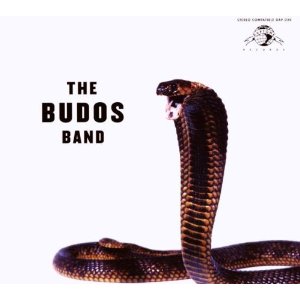
The Budos Band’s newly released third album, the aptly titled The Budos Band III, features a much darker sound than their previous efforts. This album also sees the band coming into their own, establishing more of a unique identity, as they drift away from the Afrobeat sounds that permeated the early part of their career.
I had the pleasure of speaking to Budos Band baritone saxophonist Jared Tankel and drummer Brian Profilio backstage before their recent gig opening for Sharon Jones & The Dap Kings at Celebrate Brooklyn. I found them to be very informal yet rather exuberant guys with a very fun sense of humor. It was also rather evident that they are very close, as the two would often speak in tandem, finishing one another’s sentences.
Brian Ferdman: So how does it feel to be back in New York for a hometown gig?
Jared Tankel: I’m excited. I’m ready to rock. It’s been a while. We did Southpaw—that was…?
Brian Profilio: It was March Madness.
JT: During the basketball tournament. So it’s been a while, and I’m psyched. I can’t wait to get out on that stage and bust open these people’s heads a bit.
BP: That was the best soundcheck we’ve ever had.
JT: That was an amazing soundcheck.
BP: We have the brass playing with us tonight— (Daptone Records founder) Gabe (Roth), the big dog!
JT: He’ll be sitting in with us, so that’s cool. People are showing up to expect a sweet soul gig with pretty sounds coming out of a singer’s mouth, and we’re gonna really mess with their heads a little bit.
BF: So is this a cool dynamic for you guys to be on a double bill with the Dap-Kings? You’ve taken on a much darker sound, especially with this new album. Is it shocking for a lot of people when you play?
BP: I think people are surprised that we’re even on the label. I think if we had the sound we have now when we first went to Daptone, they would have said, “Okay, guys. Beat it.” But we had more of that Latin or Afrobeat sound when we first started, and Daptone said, “Cool. We can use this, sort of like a little hitch. You know, it’s not exactly Afrobeat, but it’s close, and it kind of has that soulful thing going on. This band will fit well on this label.” And now, over the last six years, we’ve changed so much. We’ve gotten so much more wild and just…
JT: Dirty…and fuzzy…and out there.
BP: But (the way we sound) now I don’t know if Daptone would have even given us the time of day!
BF: So what’s made you guys change? Who’s been the catalyst?
BP: You know what it is? Going out and playing shows, being on the road, traveling to different places— there are ten of us, so everywhere we go is hard. You can put us in a trailer in the middle of the woods, but there are ten of us, so it’s…
Both: It’s GO TIME!
BP: All the time. So when we hit the stage, we’re so amped up, we’re so ready to go that playing laid-back Afrobeat…
JT: It’s not gonna work.
BP: So we just kept amplifying it, and increased the energy. Over the years, it just slowly grew. And when we’re in the van…
JT: We listen to ‘70s rock. Lately, all we do is roll around listening to ‘70s hard rock, and that’s just gonna come out in our music.
BP: It’s not that we’re necessarily playing (‘70s rock), but the vibe and the aesthetic and the energy of it starts coming through. It’s just a bigger, more dynamic sound.
JT: And the diversity of listening diets has always been part of this band. There are dudes who are metalheads, there are the soulheads, there are all types. But especially over the past two years, I think we’ve just become more comfortable with our influences. We’ve been playing together for a while now, so we’re more comfortable allowing those influences to come out in our writing process. It’s more of a comfort level, too. A bunch of the guys have been playing together for fifteen years, but as a group, we’ve been together for eight years. The band was started to be an Afrobeat band, but now we’ve just grown into ourselves.


No Comments comments associated with this post